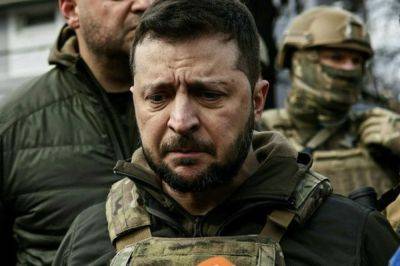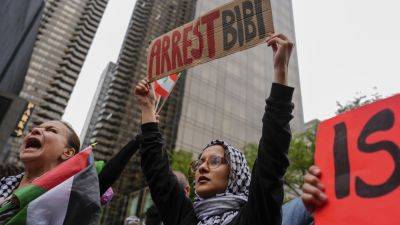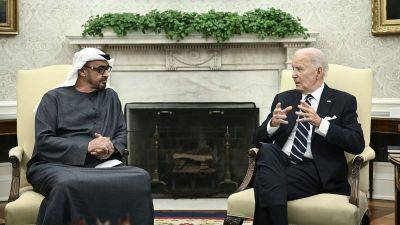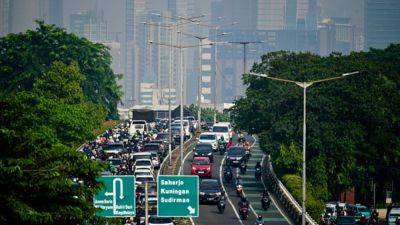At the UN, young people push to make sure the generational shift is faster — and more substantial
UNITED NATIONS (AP) — They were sharing the world stage to discuss a plan to give young people more input in decisions that shape lives. And 26-year-old Daphne Frias, talking to the head of the United Nations, had thoughts.
“Truly, it’s time for the people who do so much of the talking to do less of the talking,” the disability and climate activist told Secretary-General António Guterres. “And to have the voices of my generation… lead.”
Their exchange this month, at a leadup event to the U.N. General Assembly’s meeting of nations’ leaders, was a measure of diplomacy’s generation gap.
A big young cohort is coming of age in a troubled world, and it’s coming with ideas about inclusion, participation and authority. Those ideas are nudging the hierarchical, bureaucratic ways of an international order set up when their grandparents were kids or not even born.
“My generation messed up when it comes to the world today,” the 75-year-old U.N. chief told Frias and an audience of activists and others in the vast, coolly elegant assembly hall.
The world needs a new generation that understands “we are living to disaster” and can turn it around, Guterres said, adding emphatically: “We cannot do that if your generation is not part of the decision-making process that is still controlled by my generation that messed up.”
Passing the torch can be difficult
But how to make that change in a global system and governments largely run by older people, and a United Nations that has tried to engage the young but still has some procedures, protocol — and even architecture — reflecting what was “modern” more than seven decades ago? Does the U.N. matter, anyway, to a social-network-native generation with its own means of connecting and organizing







